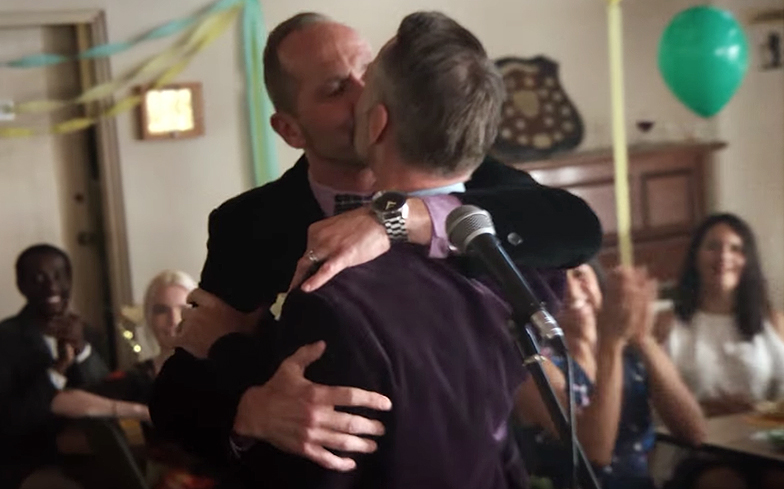
Apple continues to champion gay rights with their new iPhone X advert.
The tech giant is known for promoting equality both within the company and outwardly through their marketing campaigns, while their CEO Tim Cook is openly gay and regularly speaks out in support of LGBTQ rights.
So it’s no surprise that their latest Australian advert for the iPhone X, which is aptly titled First Dance, follows that trend by shining a light on the weddings that are now possible since the country introduced marriage equality late last year.
Related: Gay couple tie the knot minutes after Australia legalises same-sex marriage
The video, which is set to the song Never Tear Us Apart by Courtney Barnett, features a compilation of clips of same-sex weddings between men and women that have been filmed on the iPhone X.
Watch the advert below.
In December last year, Australia finally passed legislation allowing same-sex couples the same marriage rights as their heterosexual counterparts, in a major milestone for the LGBTQ rights movement.
Only five lawmakers registered their opposition to the bill, and the news of its passing was met with standing ovation by MPs in the House of Representatives.
The vote in parliament came following a voluntary, non-binding postal survey on the issue of same-sex marriage, which saw 61.6% of Australians vote in favour of equality.
Meanwhile, Bermuda has disappointingly become the first country to legalise and then repeal same-sex marriage.
The island nation and North Atlantic British Overseas Territory’s Supreme Court legalised same-sex marriage last year with a landmark ruling, after it deemed a ban on such a union a discriminatory violation of human rights.
However, in February, Governor John Rankin signed a bill replacing the legislation with The Domestic Partnership Act, which will allow gay and straight couples to form domestic partnerships in the government’s attempt at offering “equal rights”.
The ruling was met with widespread backlash from international human rights groups, who claim the decision contradicts Bermuda’s constitution of protecting its citizens from discrimination, and legal challenges have appeared.



